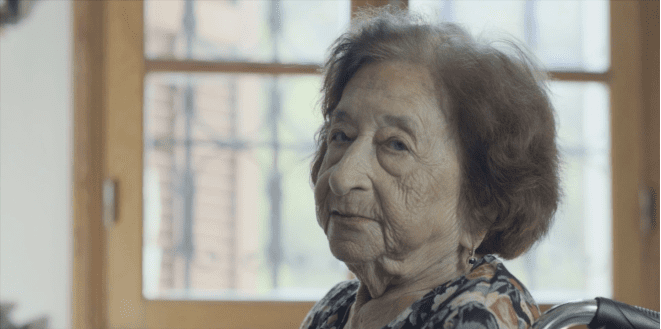The longer people who went through the Holocaust were alone during that period of suffering, the more intense the level of traumatic symptoms they are currently experiencing, according to a new study conducted at the University of Haifa.
Prof Yuval Palgi of the university’s Faculty of Social Welfare and Health Sciences published his findings in the journal GeroPsych under the title: “The Relation Between Loneliness or Positive Solitude with
Posttraumatic Symptoms of Holocaust Survivors” to appear before Martyrs’ and Heroes’ Remembrance Day.
He and his team also found that among those who reported feeling very lonely during the Holocaust, their post-traumatic symptoms were lower if they acquired the ability to positively experience time with themselves. In many cases, the traumatic effect was exacerbated by their not receiving social acknowledgment of being trauma victims of the war. The late Romanian-born Holocaust survivor, author of 57 books and Nobel Peace Prize winner Prof. Eli Wiesel described in 1960 his feeling of loneliness with the words, “I was alone – terribly alone in a world without God and without man.”
In the current study. Palgi and research student Yonat Hayun from the gerontological sciences department at the University of Haifa, together with Dr. Lee Greenblatt-Kimron from Ariel University asked if there was a connection between the loneliness the survivors felt during the war and the post-trauma symptoms they experience today.
“We can now better understand not only how difficult it was to be alone and the experience of loneliness during the Holocaust, but also what helped many to deal with this difficulty,” said Palgi.
More than 75 years after the end of World War II and a year after the outbreak of COVID-19 pandemic, Holocaust survivors have to deal with the challenges of old age, including loneliness, in the shadow of the long-term consequences of the trauma they went through during the war.
According to the researchers, the experience of loneliness is a major factor in the experience of aging Holocaust survivors. In contrast, the experience of “soloism” – the positive experience of being with yourself voluntarily, of actually wanting and even enjoying being alone, a concept recently developed by Palgi and colleagues – has a significant ability to alleviate the suffering created by experiences of loneliness and isolation from the past.
Through the report on the number of years they lived during the Holocaust without any first-degree family member, as well as on the subjective experience of the feeling of loneliness they felt during the war, the study involved 81 Holocaust survivors born in Europe before 1939 who were 16 or younger when World War II broke out.
The results of the study show that the number of years the survivors reported living without any first-degree family members and the degree of loneliness they experienced during the Holocaust were related to the extent to which they report feeling abandoned today – the lonelier they felt during the Holocaust, the more likely they felt more isolated today.
The higher the level of loneliness reported by survivors today, the higher the level of post-traumatic symptoms – intrusive memories of Holocaust-era experiences, nightmares, difficulty concentrating and avoidance of Holocaust-related stimuli. This connection was stronger among survivors who reported longer living alone during the Holocaust.
“That is, the lonelier the survivors were during the Holocaust, the lonelier they feel today and the higher the level of their traumatic symptoms,” stressed Palgi. However, it turns out that this connection was different among Holocaust survivors who managed to develop soloism. These survivors reported lower levels of post-trauma symptoms, even if they were lonely during the Holocaust.
“It seems that those who have learned over the years to enjoy themselves for a long time have managed to cope better with the difficult experiences of Holocaust trauma. We all experience loneliness during our lives, but it is clear that its negative consequences can be reduced by improving the ability to enjoy time with ourselves. We hope to help survivors who have alone for a long time and experience loneliness,” the researchers concluded



